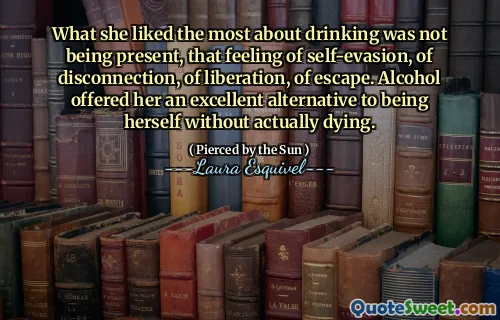In Irena's head the alcohol plays a double role: it frees her fantasy, encourages her boldness, makes her sensual, and at the same time it dims her memory. She makes love wildly, lasciviously, and at the same time the curtain of oblivion wraps her lewdness in an all-concealing darkness. As if a poet were writing his greatest poem with ink that instantly disappears.
Irena experiences a complex relationship with alcohol in Milan Kundera's "Ignorance." On one hand, it emboldens her, allowing her to explore her desires with abandon and enhancing her sensuality. This liberation lets her indulge in passionate encounters, transforming her experiences into vivid, albeit fleeting, moments of pleasure. However, the alcohol also clouds her memory, creating a contrast between her wildness and the obscurity that follows her revelries.
This duality suggests that while she may feel liberated and wild in the moment, these experiences are transient and ultimately evade lasting remembrance. Kundera employs the metaphor of a poet crafting an exquisite poem with ink that vanishes immediately, highlighting the ephemeral nature of both desire and memory. Irena's encounters, though intense, become part of a fleeting narrative lost in the shadows of forgetfulness.

